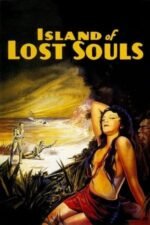Paradise Lost? Exploring the Allure & Danger of the Exotic Island in Cinema
There's something inherently captivating about the "exotic island" trope in film, isn’t there? It taps into a primal yearning – a desire for escape, for untouched beauty, and perhaps even a little bit of adventure. But it's far more complex than just swaying palms and turquoise waters; these cinematic islands often serve as potent metaphors for societal anxieties, personal journeys, and the darker side of human nature.
Think about What a Honeymoon – that recently rediscovered gem from 1979. It’s pure escapism, initially presenting Banana Island as this sun-drenched paradise where newlyweds can just… relax! But even in its lightheartedness, it hints at something more: the potential for hidden dangers lurking beneath the surface of idyllic beauty. That feeling is amplified tenfold when you consider films like Terminal Island. Suddenly, that isolation and seeming tranquility become a breeding ground for brutality and exploitation. San Bruno Island isn’t paradise; it's a prison, a microcosm reflecting the worst aspects of human behavior stripped bare by circumstance.
The power of the exotic island lies in its duality. It can be a place of renewal, as we see in Age of Consent. The elderly artist finds his spark reignited not through grand gestures but through an unexpected connection on that remote island – a testament to life’s ability to surprise us even when we think our best days are behind us. It's a beautiful exploration of how vulnerability and new experiences can unlock creativity, regardless of age.
But the trope isn’t always about personal growth. Tower of Evil takes the “lost civilization” angle and twists it into something genuinely unsettling. The island becomes a stage for ancient horrors, blurring the lines between archaeological discovery and terrifying reality. It reminds us that even places seemingly steeped in beauty can hold dark secrets.
Interestingly, you see this same tension play out across genres. The Last Don, while primarily a crime saga, uses its Sicilian setting – an island geographically and culturally separate from mainland America – to emphasize the insular nature of power and tradition. And then there’s Voyage to Melonia, which takes the trope into full-blown fantasy territory. The contrast between Miranda's bleak homeland and the luminous beauty of Melonia isn’t just visual; it represents a journey from oppression to freedom, from despair to hope. It echoes classic fairy tales – think The Blue Lagoon but with a touch more magic and a deeper exploration of societal structures.
Ultimately, the exotic island in film is rarely just about geography. It's a canvas onto which we project our hopes, fears, and anxieties. It’s a place where the familiar rules don’t always apply, forcing characters (and us, as viewers) to confront uncomfortable truths about themselves and the world around them. So next time you see an island paradise on screen, ask yourself: what's really hiding beneath those palm trees?







































